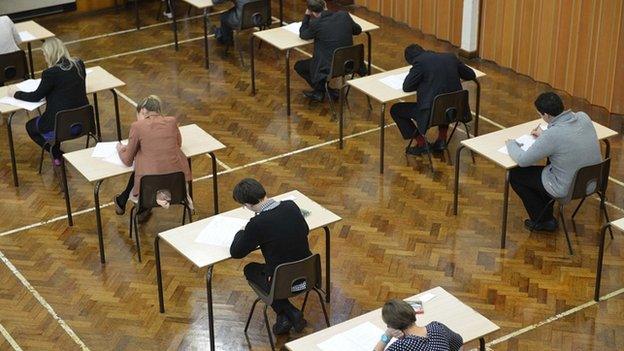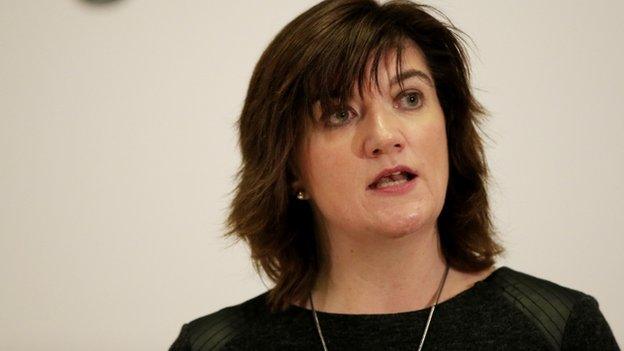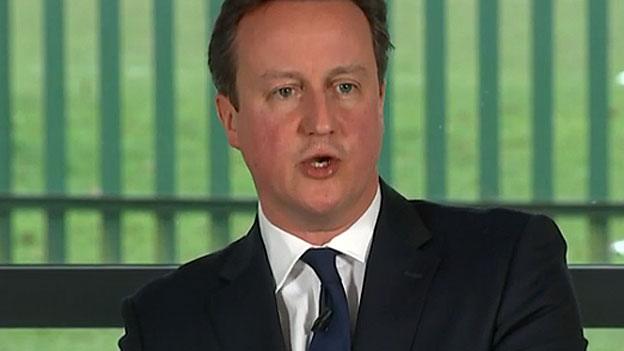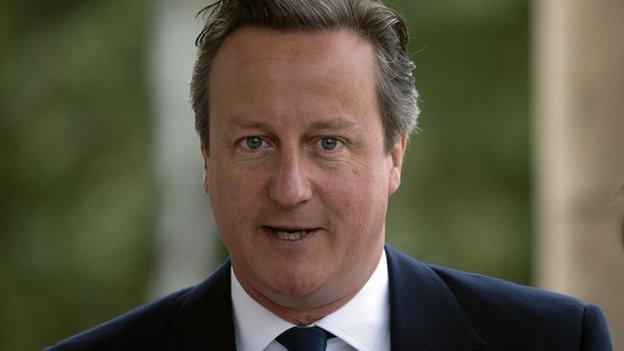Call to end limit on religious free schools
- Published

There have been fewer faith schools among free schools than across the rest of the state sector
A charity which has been a driving force behind opening many free schools wants to remove barriers to faith groups opening more free schools.
The New Schools Network says it wants to remove the rules for free schools limiting the number of places allocated on grounds of religion.
These rules have discouraged the opening of any Catholic free schools.
New Schools Network director Nick Timothy says the limits are blocking "high-calibre school providers".
Under the current free school regulations, if a faith group opened a free school it could only give priority to applicants on the grounds of religion for half the places.
This has been seen as a deterrent to faith groups who might want to apply to open free schools, with fewer than a fifth of free schools currently having a link to a religious group, lower than the state sector average.
'Untapped potential'
The New Schools Network, part-funded by the Department for Education, says that these limited number of faith free schools are the most oversubscribed in the primary school sector.
The government has a target to open 500 more free schools - and all new schools opened by academy trusts now have to be designated as free schools.
But the New Schools Network, a key supporter of the government's free school expansion, says there is "significant untapped potential" among current school providers.
In particular, it highlights Catholic schools, saying "over 85% of children in Catholic state schools are in good or outstanding schools, compared to 80% in all schools".
Catholic schools also have a higher proportion of ethnic minority pupils than average, says the New Schools Network.
The charity says it wants to abolish the cap on places for faith free schools, which has proved a disincentive.
This would apply to any faith groups wanting to open free schools, says the New Schools Network.
It also says there could be "multi-religious" schools, proposed by partnerships of different faiths.
Mr Timothy said: "Although well-intentioned, the current 50% cap on admissions is actually blocking existing high-calibre school providers creating the much-needed places that parents want."
"Faith schools are more likely to be ethnically diverse, are more popular with parents, and are delivering a better quality education than other types of school."
Paul Barber, director of the Catholic Education Service, said Catholic schools remained "open to the idea" of free schools, but the current limits meant they were "unable to engage".
He said that it was against "common sense" for a faith group to open a school and then once its 50% quota had been reached to turn parents away because they belonged to that faith group.
But the Accord group, which campaigns against schools being able to select on grounds on religious belief, has written to the education secretary asking her to retain the 50% cap for free schools.
Christine Blower, leader of the National Union of Teachers, said: "The rule ensures that at least half of the free schools' intake is not restricted to a particular faith.
"Free schools are paid for by all taxpayers. It would be wrong to exclude children local to the school where their parents wish them to attend irrespective of their faith."
The chief executive of the British Humanist Association, Andrew Copson, criticised the proposals as risking "further segregating children by defining and dividing them by the religions and beliefs of their parents".
A statement from the Department for Education said: "The requirement for all oversubscribed faith free schools to make at least 50% of their places available to those of another or no faith helps to tackle segregation and ensures young people will experience the diversity of religious beliefs that make up modern Britain."
- Published25 January 2016

- Published9 March 2015

- Published2 September 2015
